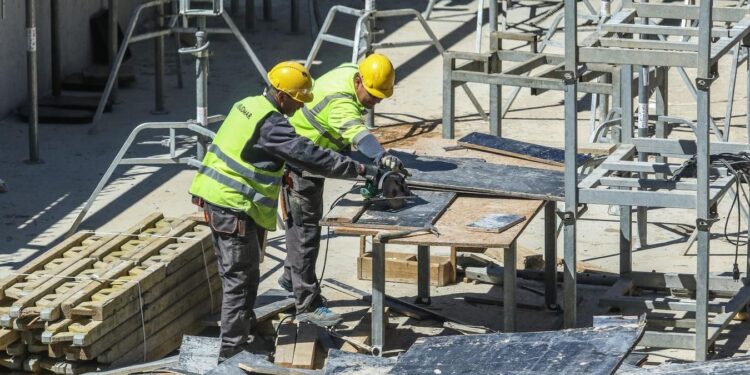Construction workers, steel fixers and bricklayers are seen at the Gdansk Lech Walesa Airport in … [+] Gdansk, Poland on 29 May 2020. (Photo by Michal Fludra/NurPhoto via Getty Images)
NurPhoto via Getty Images
Despite boasting the fastest GDP growth in the European Union and a record-low unemployment rate, Poland is facing significant threats to its economic prosperity due to severe labor shortages.
More than 80% of small and medium-sized enterprises report struggling to find enough workers. In some industries—such as construction, manufacturing, transportation, and logistics—staffing shortages affect half or more of the companies.
In an effort to attract more foreign workers and fill labor market gaps, the government is developing its first comprehensive migration strategy, expected to be unveiled by the end of the year.
Until now, Poland’s migration policies have been largely reactive and lacked clearly defined long-term objectives, reducing the country’s attractiveness to foreign workers and hampering investment.
According to a June study by the Polish Economic Institute, half of the companies surveyed said that labor shortages were a significant barrier to their operations. The problem is particularly severe in the construction industry, where nearly seven out of ten businesses are affected.
According to data from the Central Statistical Office (GUS), in the first quarter of this year, Polish employers reported 112,000 job vacancies that could not be filled despite active recruitment efforts. Estimates suggest that Poland’s labor shortage could reach up to 1.5 million workers by 2026.
Some of the reasons behind Poland’s labor shortages include low fertility rates and an aging population. Over the past 30 years, the birth rate decreased by 40% and currently stands at 1.33. The country’s statistical agency forecasts that the population will continue to shrink in the coming decades and that between 2023 and 2060, the number of people of working age will decrease by at least 7 million.
Yet businesses seeking to employ migrants face many bureaucratic hurdles. Andrii Arkaniuk, employment legalization specialist at Contrain Group, a recruitment agency, says it can take eight to 10 months for a worker from outside the EU to receive a permit.
In August, 11 business associations urged the government to adopt a “favorable approach to legal, sustainable labor immigration.” Many entrepreneurs are concerned that strict immigration policies will make it harder to hire workers.
Katarzyna Dębkowska, head of the Economic Foresight Team at the Polish Economic Institute, says developing a comprehensive, responsible, and selective migration policy should be one of the government’s most urgent priorities.
“This is particularly important given that, over the past decade, Poland has shifted from a country with a negative net migration balance to one with a positive balance,” Dębkowska says.
Approximately one million foreigners are employed in Poland, making up 6.6% of the total workforce. Of these, 68.7% come from Ukraine, followed by 11.4% from Belarus and 2.5% from Georgia.
Up to a third of Ukrainians in Poland are considering leaving the country, as they are employed in roles beneath their qualifications and see limited opportunities for advancement. This poses a serious risk for industries such as construction, transport, and logistics, which heavily rely on Ukrainian labor.
Arkaniuk believes Ukrainian refugees could significantly benefit the Polish economy if they were employed in positions that match their skills. However, the main challenge they face is the language barrier, as many do not speak Polish.
He suggests the government consider offering support for Polish language education, possibly through tax breaks or subsidies, to help Ukrainian workers integrate more effectively and fully contribute to the workforce.
Source link : http://www.bing.com/news/apiclick.aspx?ref=FexRss&aid=&tid=66f5bbaa5257436698bf9c15271111d5&url=https%3A%2F%2Fwww.forbes.com%2Fsites%2Flidiakurasinska%2F2024%2F09%2F26%2Fpolands-economic-growth-is-threatened-by-severe-labor-shortages%2F&c=1520812459050789685&mkt=en-us
Author :
Publish date : 2024-09-26 12:03:00
Copyright for syndicated content belongs to the linked Source.


